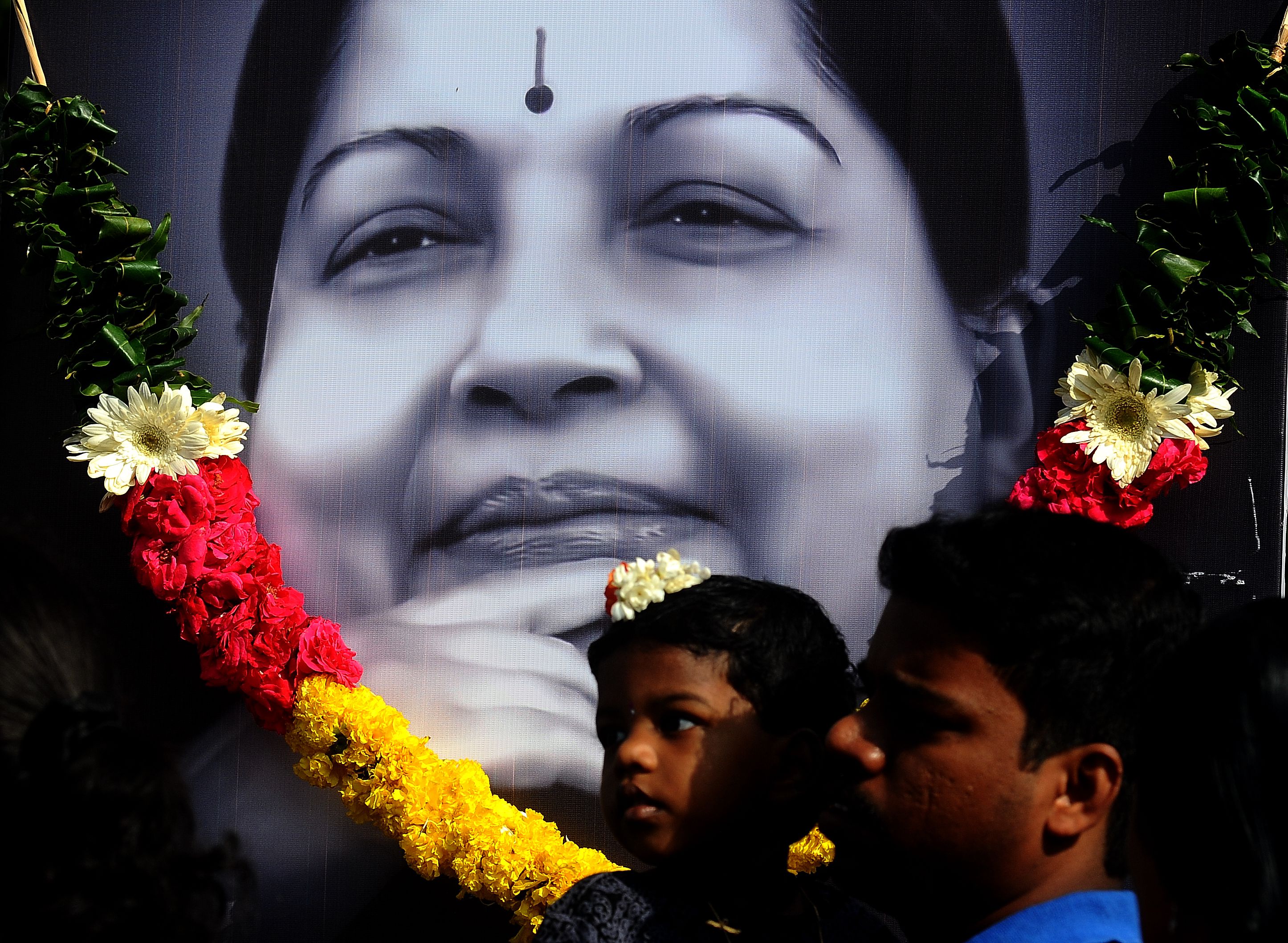Authoritarian leadership, big corruption, and endless freebies for the masses. These were the hallmarks of Tamil Nadu chief minister Jayalalithaa (popularly called Amma) who died last week. In this week of mourning, she has been praised by even her bitter political foes. Yet this political correctness must not distort her electoral record.
Since the 1970s, power in Tamil Nadu has oscillated between the DMK and Amma’s AIADMK. The big exception was in 1984, when M G Ramachandran was re-elected. After that, every incumbent was voted out. So, when Amma was re-elected earlier this year, analysts called it spectacular, and attributed it to a record list of freebies and subsidies that supposedly won her the undying love of the masses.
That’s rubbish. Far from winning the undying love of the masses, Amma’s vote share actually crashed from almost 52% in 2011 to just over 42% in 2016. This huge anti-incumbent swing should normally have meant crushing defeat.
But, luckily for her, the DMK was so confident of winning that it failed to bring small but significant parties into its alliance. The anti-incumbent vote was split, with the Third Front and PMK winning almost 11% of votes. This allowed Amma to squeak through with tiny margins in many seats. The outcome was more a DMK blunder than a great Amma victory.
To put the figures in perspective, the vote share of Amma’s alliance in her earlier victories was 59.8% in 1991, 50.1% in 2001, and 51.9% in 2011. So, the crash to barely 41% in 2016 is not evidence of some fabulous rapport with the masses. Yes, she had a core of fanatical supporters. But when I covered the election campaign, one female voter said, “Where does Amma get all this money for freebies? From the people, of course. If she then gives back some of it, should we be grateful?”
In any case Amma had no monopoly on freebies, which were espoused by all parties in the state. The DMK over the years also advocated free electricity, canal water, colour TVs and housing schemes. In the election earlier this year, it offered free WiFi connections and the waiving of farm loans.
Compared with northern states, Tamil Nadu has always enjoyed a good economic climate and government services, despite deep corruption. Fast GDP growth in the liberalisation era brought rising revenues and ever-higher freebies from both parties. But state voters proved too smart to be purchased. Despite freebies offered by both sides, voters persistently voted out incumbents for corruption and misgovernance.
This echoed the historical all-India trend. Having won India independence, the Congress dominated elections till 1989. Slow GDP growth in those pre-liberalisation days meant there was no correlation between economic growth and electoral victory. The Congress found victory as easy or difficult in fast-growing Maharashtra as in the slow-growing BIMAROU states (Bihar, Madhya Pradesh, Rajasthan, Odisha, Uttar Pradesh and Jharkhand).
Politics became a business. Governments extorted huge sums while in office, and then offered freebies to voters and bought off minor parties and vote banks to form wining alliances. Yet this did not guarantee re-election: three-quarters of all incumbents lost.
The big change came in the 2000s, when economic reforms launched by New Delhi in 1991 facilitated record growth. A new breed of chief ministers came up, mostly in the misgoverned BIMAROU states. These CMs focused on better governance and infrastructure, not freebies. Corruption and subsidies did not vanish, but cleaner politics and purposive development sparked record GDP growth. Bihar and Madhya Pradesh were in some years the fastest-growing states in India.
The electoral consequences were dramatic. Naveen Patnaik in Odisha won four elections in a row. Others won three elections in a row — Nitish Kumar in Bihar, Raman Singh in Chhattisgarh, and Chouhan in Madhya Pradesh. So did Narendra Modi in Gujarat.
Suddenly anti-incumbency was replaced by pro-incumbency. The trick was to shift (though not entirely) from freebies to cleaner government plus economic development. Where the government was not clean (as in several regimes in Jharkhand and Uttar Pradesh), economic growth was slower and CMs did not get re-elected.
BIMAROU chief ministers chalked up far better electoral records than Amma ever did. So, even as we mourn her, let nobody think she proved that popularity is best bought by freebies.


